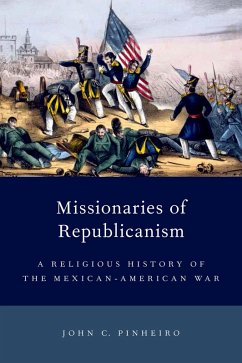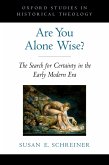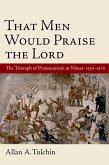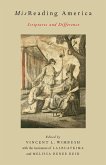Winner of the Fr. Paul J. Foik Award from the Texas Catholic Historical Society The term "Manifest Destiny" has traditionally been linked to U.S. westward expansion in the nineteenth century, the desire to spread republican government, and racialist theories like Anglo-Saxonism. Yet few people realize the degree to which Manifest Destiny and American republicanism relied on a deeply anti-Catholic civil-religious discourse. John C. Pinheiro traces the rise to prominence of this discourse, beginning in the 1820s and culminating in the Mexican-American War of 1846-1848. Pinheiro begins with social reformer and Protestant evangelist Lyman Beecher, who was largely responsible for synthesizing seemingly unrelated strands of religious, patriotic, expansionist, and political sentiment into one universally understood argument about the future of the United States. When the overwhelmingly Protestant United States went to war with Catholic Mexico, this "Beecherite Synthesis" provided Americans with the most important means of defining their own identity, understanding Mexicans, and interpreting the larger meaning of the war. Anti-Catholic rhetoric constituted an integral piece of nearly every major argument for or against the war and was so universally accepted that recruiters, politicians, diplomats, journalists, soldiers, evangelical activists, abolitionists, and pacifists used it. It was also, Pinheiro shows, the primary tool used by American soldiers to interpret Mexico's culture. All this activity in turn reshaped the anti-Catholic movement. Preachers could now use caricatures of Mexicans to illustrate Roman Catholic depravity and nativists could point to Mexico as a warning about what America would be like if dominated by Catholics. Missionaries of Republicanism provides a critical new perspective on Manifest Destiny, American republicanism, anti-Catholicism, and Mexican-American relations in the nineteenth century.
Dieser Download kann aus rechtlichen Gründen nur mit Rechnungsadresse in A, B, BG, CY, CZ, D, DK, EW, E, FIN, F, GR, HR, H, IRL, I, LT, L, LR, M, NL, PL, P, R, S, SLO, SK ausgeliefert werden.









